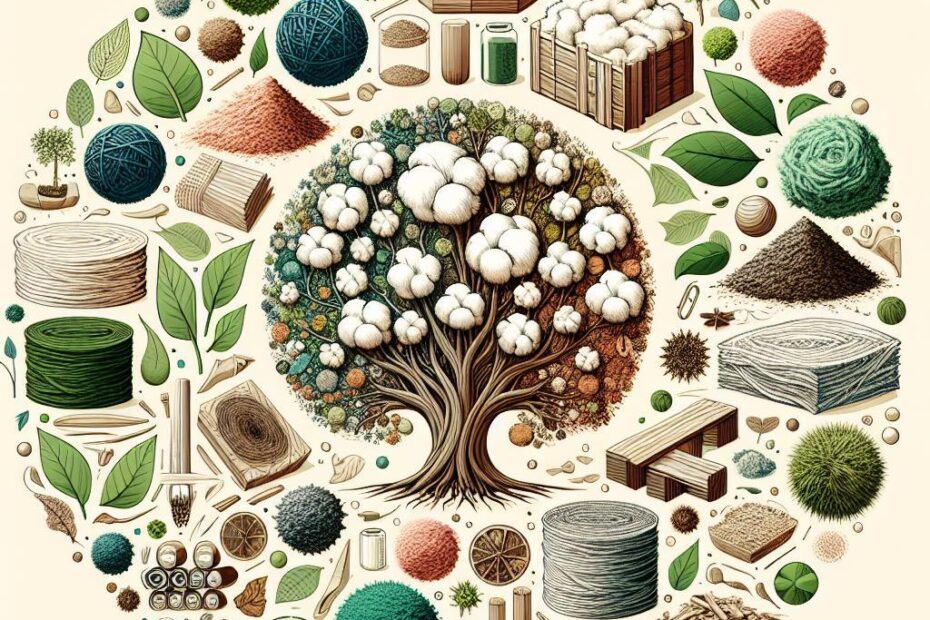Organic Materials Examples: A Comprehensive Guide
In today’s world, there is a growing trend towards using organic materials in various products and industries. Organic materials are derived from living organisms or their byproducts and are environmentally friendly, sustainable, and biodegradable. They play a crucial role in reducing our carbon footprint and promoting a more sustainable way of living. In this article, we will explore some common organic materials examples, their benefits, and practical tips for incorporating them into your daily life.
What are Organic Materials?
Organic materials are substances that come from plants or animals and are free from synthetic chemicals or genetically modified organisms. They are typically biodegradable, meaning they can decompose naturally without harming the environment. Organic materials are often used in agriculture, construction, textiles, and packaging, among other industries.
-
Cotton: Cotton is one of the most widely used organic materials in the textile industry. It is soft, breathable, and hypoallergenic, making it ideal for clothing, bedding, and other textile products. Organic cotton is grown without synthetic pesticides or fertilizers, making it a more sustainable and environmentally friendly option.
-
Wool: Wool is another popular organic material that comes from sheep. It is warm, durable, and naturally water-resistant, making it ideal for clothing, blankets, and carpets. Organic wool is produced without the use of synthetic hormones or chemicals, making it a safer and more sustainable choice.
-
Bamboo: Bamboo is a fast-growing plant that can be harvested sustainably for various purposes. It is lightweight, strong, and naturally antibacterial, making it a popular choice for clothing, flooring, and furniture. Bamboo is also biodegradable and renewable, making it a more eco-friendly alternative to traditional materials.
-
Hemp: Hemp is a versatile plant that has many uses, including clothing, paper, and building materials. It is strong, durable, and breathable, making it a great option for sustainable products. Hemp is also naturally resistant to pests and requires fewer pesticides and fertilizers to grow, making it a more environmentally friendly choice.
Benefits of Using Organic Materials
-
Environmentally friendly: Organic materials are biodegradable and sustainable, reducing our impact on the environment and promoting a more sustainable way of living.
-
Healthier: Organic materials are free from harmful chemicals and toxins, making them safer for both humans and the environment.
-
Renewable: Many organic materials, such as cotton and bamboo, are renewable resources that can be harvested sustainably without depleting the earth’s natural resources.
-
Higher quality: Organic materials are often of higher quality than their synthetic counterparts, offering better durability, comfort, and performance.
Practical Tips for Using Organic Materials
-
Check labels: When shopping for products, look for organic certifications, such as GOTS (Global Organic Textile Standard) for textiles, to ensure that they are made from organic materials.
-
Choose natural fibers: Opt for clothing and textiles made from organic cotton, wool, bamboo, or hemp to reduce your environmental impact and support sustainable practices.
-
Support eco-friendly brands: Look for companies that prioritize sustainability and use organic materials in their products to help promote a more eco-friendly lifestyle.
-
DIY projects: Get creative and make your own products using organic materials, such as homemade cleaning solutions, beauty products, and clothing.
In conclusion, organic materials play a vital role in promoting sustainability, reducing our carbon footprint, and creating a healthier environment for future generations. By incorporating organic materials into our daily lives, we can make a positive impact on the planet and support sustainable practices. Whether it’s choosing organic cotton clothing, bamboo furniture, or hemp paper, every small step towards using organic materials can make a big difference in creating a more eco-friendly world. So, next time you’re shopping for products, consider choosing organic materials for a more sustainable lifestyle.
